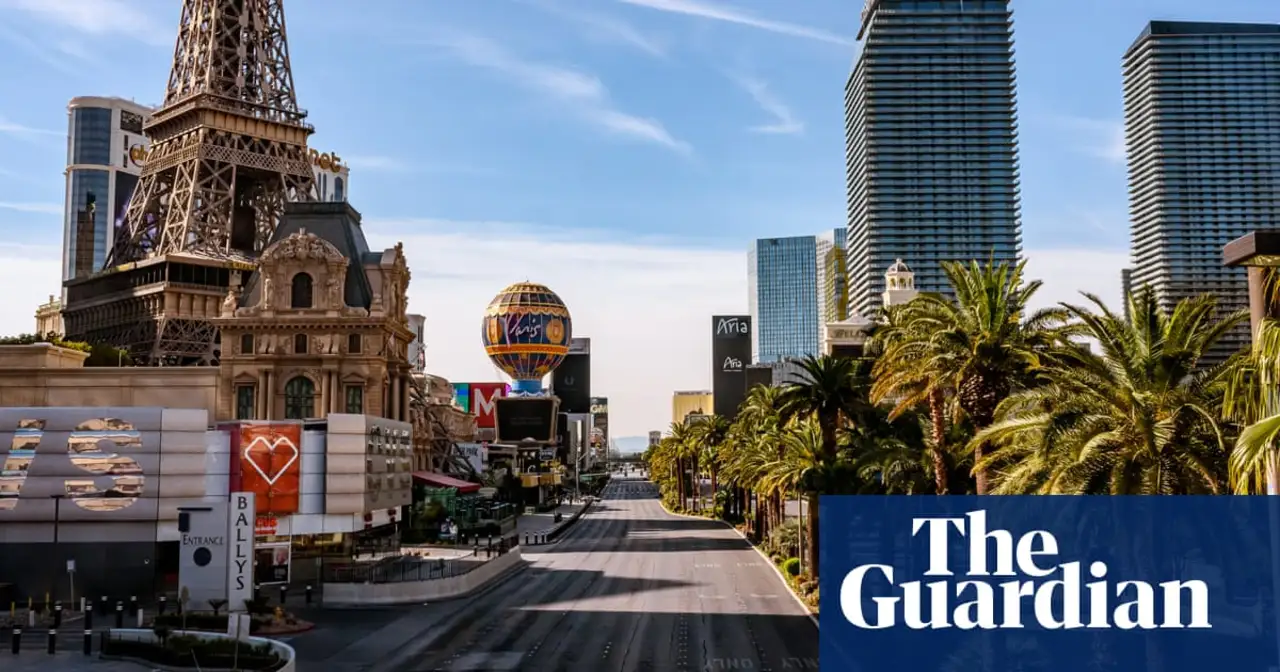Are there more hotels than usual that are empty nowadays?

Exploring the Impact of the COVID-19 Pandemic on the Hotel Industry
The COVID-19 pandemic has completely changed the way the hotel industry operates. The global travel restrictions, social distancing measures, and the general fear of contracting the virus have all contributed to the dramatic decrease in hotel occupancy rates. This has had a far-reaching effect on the industry, from large international chains to small, locally-owned establishments.
The most obvious impact of the pandemic on the hotel industry is the massive decrease in occupancy rates. With travel restrictions preventing people from moving from one country to another and social distancing measures preventing large gatherings, there is simply not enough demand for hotel rooms. This has created a situation where many hotels are operating at less than half capacity, or even empty.
The decrease in occupancy rates has forced hotels to adjust their operations accordingly. Many hotels have had to reduce their staff or lay off employees in order to remain financially viable. Others have had to reduce their amenities and services, such as the removal of breakfast buffets and the closure of fitness centers. Some hotels have even had to close their doors completely, leaving their employees without jobs.
The decrease in occupancy rates has also had an impact on the revenue of hotels. With fewer guests, hotels have had to rely more heavily on cost-cutting measures in order to remain profitable. This has led to hotels reducing their prices in order to attract customers, which has created a race to the bottom in terms of pricing.
The pandemic has also had an effect on the ability of hotels to attract new customers. With restrictions on travel and social distancing measures, it has become more difficult for hotels to market themselves to potential customers. This has created a situation where hotels are competing for a much smaller pool of potential customers.
Overall, the COVID-19 pandemic has had a major effect on the hotel industry. With occupancy rates at an all-time low, hotels have had to make drastic changes in order to remain viable. This has had an effect on both the revenue and the ability of hotels to attract new customers.
Examining the Unexpected Consequences of Empty Hotels
The hospitality industry has been one of the most severely affected by the pandemic, and hotels are no exception. With travel restrictions, closed borders, and cancelled flights, we've seen an unprecedented drop in hotel occupancy rates. In many cities and countries, hotels have been almost completely empty for months, leading to questions about their future.
The effects of empty hotels have been far-reaching. Not only have hotels suffered major losses in revenue, but they have also been forced to lay off staff in order to cut costs. This has caused a ripple effect in local economies, with many people who rely on the hospitality industry for their livelihoods now facing unemployment and financial hardship.
The impact of empty hotels has been felt further afield as well. With fewer people travelling, tourism-dependent regions have been hit hard, with businesses and local communities suffering a huge loss of income. This has had a significant impact on the global economy, with the tourism sector estimated to lose $1.2 trillion in 2020.
The effects of empty hotels have also been felt in the environment. In many cities, the lights of empty hotels remain lit day and night, wasting energy and increasing carbon emissions. The same can be said for heating, cooling, and other energy-consuming systems that are running without guests.
The ongoing crisis has also highlighted the need for innovation in the hospitality industry. With fewer people travelling, hotels have had to find new ways to attract customers, from offering discounted rates to providing unique experiences. Hotels have also had to focus on online marketing and social media to reach out to potential guests.
The hospitality industry is facing an uncertain future, but there is hope that hotels will be able to recover from the effects of the pandemic. In the meantime, it is important to consider the unexpected consequences of empty hotels and the impact they have had on economies, communities, and the environment.
Analyzing the Reasons Behind the Surge in Empty Hotels
The hospitality industry is one of the most impacted by the pandemic due to people avoiding unnecessary travel and a drop in business trips. Hotels, which are usually packed with tourists and business people, are now seeing an unprecedented drop in occupancy rates. As the pandemic continues, many hotels are becoming emptier by the day, leaving owners wondering what the future holds.
One of the main reasons behind the surge in empty hotels is the global travel restrictions. In many countries, citizens are not allowed to leave their homes except for essential purposes, leaving hotel owners with no customers. Even in countries where some travel is allowed, people are encouraged to stay close to home and limit their contact with other people, making them less likely to stay in a hotel.
The fear of getting infected with the virus is another contributing factor in the high number of empty hotels. Even in countries where travel is allowed, people are still hesitant to book a hotel stay due to the risk of contracting the virus. This has led to hotels offering extra cleaning and safety protocols but they are still struggling to fill the rooms.
The economic crisis caused by the pandemic is another factor in the drop in hotel occupancy. Many people have lost their jobs or taken pay cuts, making them unable to afford a hotel stay. Even those who can afford it are hesitant to spend the money on nonessential travel, leading to an even greater drop in occupancy.
The pandemic has also changed people’s travel habits. Many people are now opting for alternative forms of travel, such as camping or staying with friends and family. This has led to a drop in hotel bookings, as people are more likely to stay in a free or cheaper alternative.
The hospitality industry is facing unprecedented challenges due to the pandemic. With travel restrictions, fear of infection, and economic hardships, it is no surprise that hotels are struggling to fill the rooms. It is unclear how long it will take for the industry to recover, but it is clear that hotels will need to adjust their business models in order to survive.
How to Adapt to the Changing Hotel Industry During the COVID-19 Pandemic
The hotel industry has been greatly affected by the COVID-19 pandemic, with many hotels left empty for prolonged periods. It is essential for businesses to adapt to the changing landscape in order to survive and thrive in the new normal. Here are some tips on how to adapt to the changed hotel industry during the COVID-19 pandemic.
Focus on Hygiene and Safety
The top priority of any hotel business should be the safety and wellbeing of guests and staff. Implementing strict safety protocols and ensuring high levels of hygiene should be the number one priority. This can include installing hand sanitizer dispensers, regularly disinfecting surfaces, and providing contactless check-in and payment options. This will help to create a safe and secure environment for guests and staff, and will create a sense of trust and confidence in the hotel.
Embrace Technology
In the digital age, technology plays an important role in how businesses operate. Hotels can use technology to create a better experience for guests, such as providing digital check-ins and payments, or even virtual concierge services. Hotels can also use technology to streamline operations and reduce costs, such as using automated systems for managing bookings and reservations.
Provide Flexible Cancellation Policies
The pandemic has created an uncertain and volatile environment, and travelers are more wary of making bookings due to the risk of cancellation. To counter this, hotels should provide flexible cancellation policies that allow guests to cancel their bookings without any penalty fees. This will encourage more people to book and will help to increase occupancy levels.
Offer Special Deals and Discounts
In order to attract more customers, hotels should offer special deals and discounts. This could include discounted rates for extended stays, or special packages for couples, families, or business travelers. Hotels can also offer discounts for early bookings, or loyalty rewards for repeat customers.
Reduce Operating Costs
In order to remain competitive, hotels should look for ways to reduce their operating costs. This could include renegotiating contracts with suppliers, reducing staff costs, or cutting down on energy and water consumption. These small changes can make a big difference to the bottom line, and will help to ensure the long-term viability of the business.
Market and Promote Your Hotel
With more hotels than usual that are empty, it is important to stand out from the competition. Hotels should invest in marketing and advertising in order to promote their business. This could include creating a website, launching a social media campaign, or even running a promotional discount. Taking the time to promote your hotel and create awareness will help to attract more customers.
Strategies for Hotel Owners to Survive During a Time of Empty Hotels
The hotel industry has taken a huge blow from the current pandemic, with many hotels seeing reduced occupancy and income. As a hotel owner, it can be daunting to know how to stay afloat when so few people are traveling. Fortunately, there are some strategies you can use to ensure that your hotel remains profitable during this difficult time.
1. Utilize Technology to Connect With Guests
Technology can be a great help during this time of reduced traffic. Utilizing digital platforms to create a more engaging customer experience can be an effective way to draw in more guests. By using social media to offer discounts, virtual tours of the rooms, and other promotions, you can reach out to potential customers who may not otherwise be aware of your hotel. Additionally, implementing digital check-in systems can make the experience more streamlined and efficient for those who do choose to stay.
2. Take Advantage of Low-Cost Marketing Opportunities
With fewer people traveling, there is less competition in the hotel industry. This means that you can take advantage of low-cost marketing opportunities to increase your visibility. You can use search engine optimization (SEO) to ensure your website appears at the top of search results, and reach out to local publications to get your hotel featured. Additionally, you can take advantage of low-cost or free advertising on social media platforms such as Facebook and Instagram.
3. Offer Special Deals and Packages
During a time of reduced occupancy, offering special deals and packages can be an effective way to attract more guests. You can offer discounts on extended stays, or create packages that include meals, tours, and other activities. Additionally, offering discounts to local residents can be a great way to draw in more business. By taking advantage of these opportunities, your hotel can remain profitable during this difficult time.
4. Focus on Quality and Service
While it’s important to focus on bringing in new guests, it’s also important to make sure that those who do stay have a positive experience. Make sure that your staff is providing excellent customer service, and that your rooms and amenities are of the highest quality. This will ensure that customers have a pleasant experience, and will be more likely to return in the future.
By utilizing these strategies, hotel owners can ensure that their business remains profitable during a time of empty hotels. By taking advantage of low-cost marketing opportunities, offering special deals and packages, utilizing technology to connect with guests, and focusing on quality and service, hotel owners can ensure that their business remains successful even during difficult times.

Write a comment